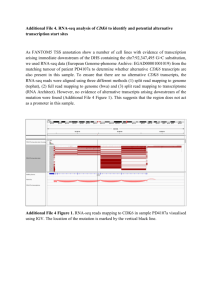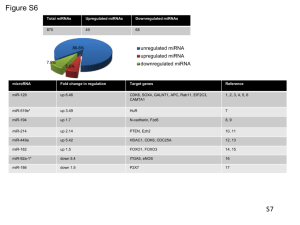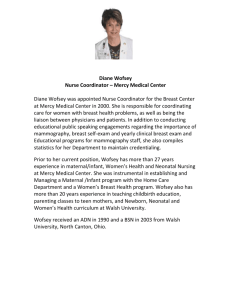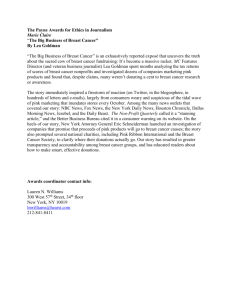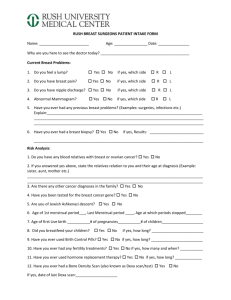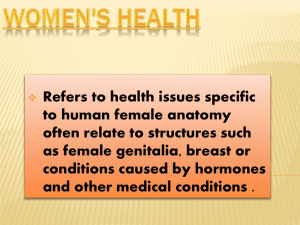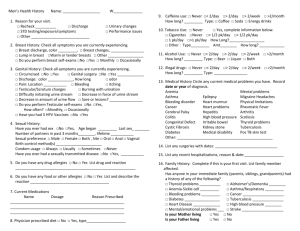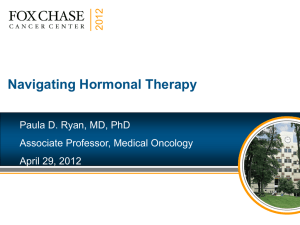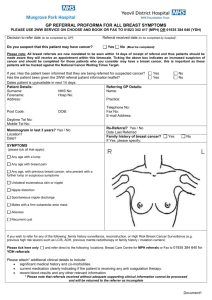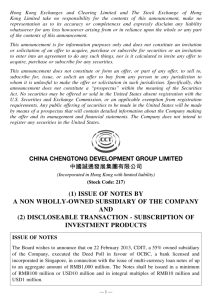Carla el al abstract AACR meeting Translation of the Cancer Genome
advertisement
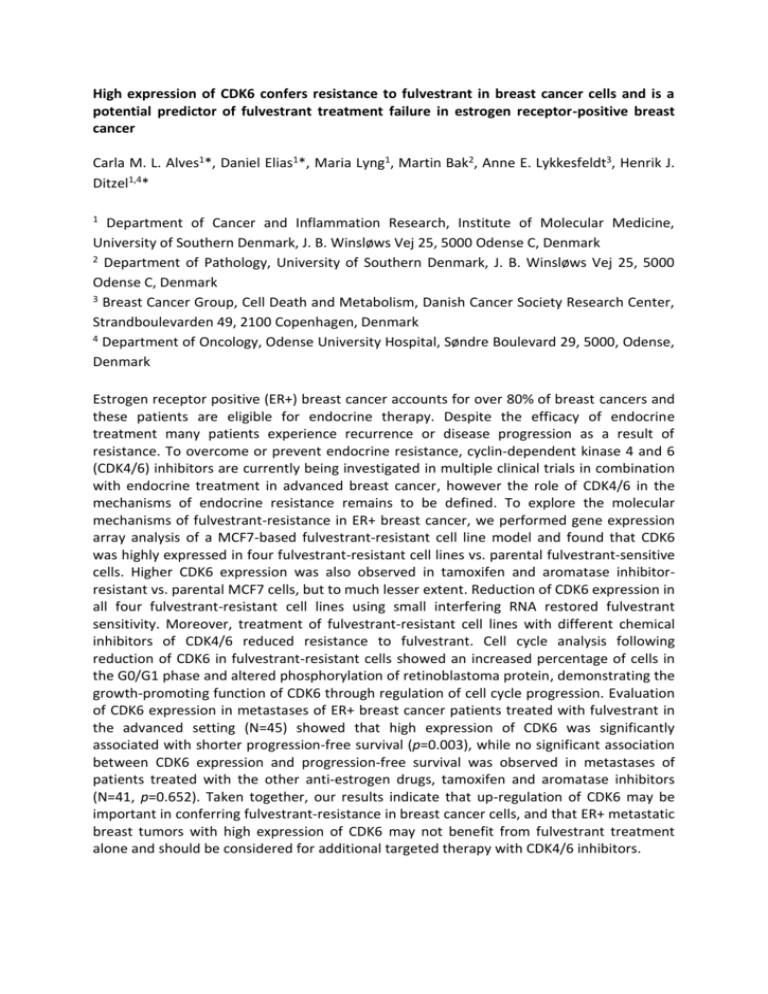
High expression of CDK6 confers resistance to fulvestrant in breast cancer cells and is a potential predictor of fulvestrant treatment failure in estrogen receptor-positive breast cancer Carla M. L. Alves1*, Daniel Elias1*, Maria Lyng1, Martin Bak2, Anne E. Lykkesfeldt3, Henrik J. Ditzel1,4* 1 Department of Cancer and Inflammation Research, Institute of Molecular Medicine, University of Southern Denmark, J. B. Winsløws Vej 25, 5000 Odense C, Denmark 2 Department of Pathology, University of Southern Denmark, J. B. Winsløws Vej 25, 5000 Odense C, Denmark 3 Breast Cancer Group, Cell Death and Metabolism, Danish Cancer Society Research Center, Strandboulevarden 49, 2100 Copenhagen, Denmark 4 Department of Oncology, Odense University Hospital, Søndre Boulevard 29, 5000, Odense, Denmark Estrogen receptor positive (ER+) breast cancer accounts for over 80% of breast cancers and these patients are eligible for endocrine therapy. Despite the efficacy of endocrine treatment many patients experience recurrence or disease progression as a result of resistance. To overcome or prevent endocrine resistance, cyclin-dependent kinase 4 and 6 (CDK4/6) inhibitors are currently being investigated in multiple clinical trials in combination with endocrine treatment in advanced breast cancer, however the role of CDK4/6 in the mechanisms of endocrine resistance remains to be defined. To explore the molecular mechanisms of fulvestrant-resistance in ER+ breast cancer, we performed gene expression array analysis of a MCF7-based fulvestrant-resistant cell line model and found that CDK6 was highly expressed in four fulvestrant-resistant cell lines vs. parental fulvestrant-sensitive cells. Higher CDK6 expression was also observed in tamoxifen and aromatase inhibitorresistant vs. parental MCF7 cells, but to much lesser extent. Reduction of CDK6 expression in all four fulvestrant-resistant cell lines using small interfering RNA restored fulvestrant sensitivity. Moreover, treatment of fulvestrant-resistant cell lines with different chemical inhibitors of CDK4/6 reduced resistance to fulvestrant. Cell cycle analysis following reduction of CDK6 in fulvestrant-resistant cells showed an increased percentage of cells in the G0/G1 phase and altered phosphorylation of retinoblastoma protein, demonstrating the growth-promoting function of CDK6 through regulation of cell cycle progression. Evaluation of CDK6 expression in metastases of ER+ breast cancer patients treated with fulvestrant in the advanced setting (N=45) showed that high expression of CDK6 was significantly associated with shorter progression-free survival (p=0.003), while no significant association between CDK6 expression and progression-free survival was observed in metastases of patients treated with the other anti-estrogen drugs, tamoxifen and aromatase inhibitors (N=41, p=0.652). Taken together, our results indicate that up-regulation of CDK6 may be important in conferring fulvestrant-resistance in breast cancer cells, and that ER+ metastatic breast tumors with high expression of CDK6 may not benefit from fulvestrant treatment alone and should be considered for additional targeted therapy with CDK4/6 inhibitors.
